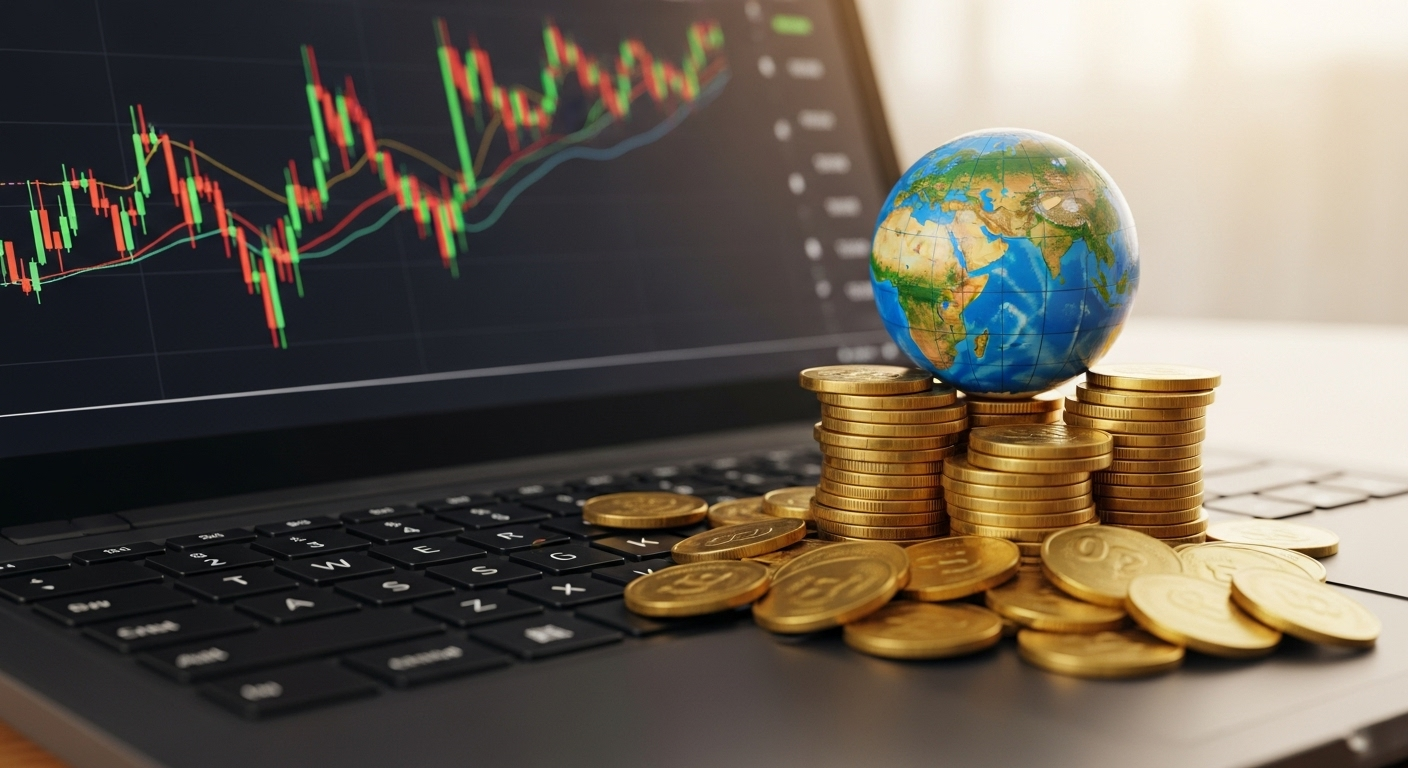The world of Forex trading presents exciting opportunities for investors seeking to participate in global currency markets. Opening a forex trading account is the essential first step toward potentially profitable ventures. This guide offers a comprehensive overview of the process, equipping you with the knowledge to navigate the complexities and make informed decisions.
Whether you’re an experienced investor or just starting, understanding how to select the right broker, choose the appropriate account type, and manage your funds is crucial. This guide will walk you through each stage, offering practical advice and insights to help you succeed in the Forex market.
Jump To Section:
- Choosing the Right Forex Broker
- Understanding Different Account Types
- Minimum Deposit Requirements
- Leverage and Margin
- Funding Your Forex Trading Account
- Verifying Your Account
- Setting Up Your Trading Platform
- Conclusion
Choosing the Right Forex Broker
Selecting the right Forex broker is a critical decision that significantly impacts your trading experience. Consider factors such as regulation, trading platform, available currency pairs, spreads, and customer support. A regulated broker ensures the safety of your funds and adherence to industry standards.
Evaluate the broker’s trading platform for user-friendliness, charting tools, and mobile accessibility. Low spreads and commissions can improve your profitability. Finally, reliable customer support is essential for resolving any issues you may encounter. Take your time and conduct thorough research to find a broker that aligns with your trading needs and preferences before opening a forex trading account.
Understanding Different Account Types
Forex brokers offer various account types, each tailored to different trading styles and experience levels. Common account types include:
- Standard Accounts: Suitable for experienced traders, offering standard lot sizes and leverage.
- Mini Accounts: Ideal for beginners, with smaller lot sizes and lower risk.
- Micro Accounts: Allow trading with very small lot sizes, perfect for testing strategies.
- ECN Accounts: Provide direct access to the interbank market with tight spreads but usually involve commissions.
Consider your trading capital, risk tolerance, and trading strategy when choosing an account type. Starting with a smaller account can help you gain experience and confidence before moving to a larger one. Understanding the differences between these account types is important when setting up a forex trading account.
Minimum Deposit Requirements
Most Forex brokers require a minimum deposit to open a forex trading account. This amount varies depending on the broker and account type. Some brokers offer accounts with very low minimum deposits, making it accessible for beginners to start trading with limited capital. However, keep in mind that trading with a small account may limit your ability to manage risk effectively.
Always check the broker’s minimum deposit requirements before opening an account and ensure you are comfortable with the amount. Consider the potential returns and risks associated with your initial investment before making a deposit.
Leverage and Margin
Leverage allows you to control a larger position in the market with a smaller amount of capital. Margin is the amount of capital required to open and maintain a leveraged position. While leverage can amplify your profits, it can also magnify your losses. Understanding how leverage and margin work is crucial for managing risk effectively.
Forex brokers offer different leverage ratios, such as 50:1, 100:1, or even higher. Choose a leverage ratio that aligns with your risk tolerance and trading strategy. Using excessive leverage can lead to significant losses if the market moves against you. Prudent use of leverage can be a powerful tool when opening a forex trading account, but it requires careful management.
Funding Your Forex Trading Account
Funding your forex trading account is a straightforward process. Brokers typically offer various funding methods, including:
- Bank transfers
- Credit/debit cards
- E-wallets (e.g., PayPal, Skrill, Neteller)
Choose a funding method that is secure, convenient, and cost-effective. Bank transfers may take longer to process, while credit/debit cards and e-wallets offer instant funding. Check the broker’s fees and processing times for each funding method. Ensure your personal and financial information is protected when making online transactions.
Verifying Your Account
Before you can start trading, you’ll need to verify your forex trading account. This typically involves providing proof of identity (e.g., passport, driver’s license) and proof of address (e.g., utility bill, bank statement). The verification process is essential for complying with regulatory requirements and preventing fraud.
Ensure that the documents you provide are clear, legible, and up-to-date. The verification process may take a few days to complete, so be patient. Once your account is verified, you can start trading and accessing all the features of the platform.
Setting Up Your Trading Platform
Once your account is funded and verified, the final step is setting up your trading platform. Most Forex brokers offer proprietary trading platforms or support popular third-party platforms like MetaTrader 4 (MT4) or MetaTrader 5 (MT5). Familiarize yourself with the platform’s features, charting tools, and order execution capabilities.
Many platforms offer demo accounts, which allow you to practice trading with virtual money before risking real capital. Take advantage of this opportunity to test your strategies and get comfortable with the platform. Once you are confident, you can switch to a live account and start trading Forex.
Conclusion
Opening a forex trading account is the gateway to participating in the global currency markets. By carefully selecting a reputable broker, choosing the right account type, understanding leverage and margin, and mastering the trading platform, you can increase your chances of success. Remember to prioritize risk management and continuously educate yourself about the Forex market.
With dedication, discipline, and a well-informed approach, you can unlock the potential of Forex trading and achieve your financial goals. The journey begins with opening that first forex trading account.



